Treatments
Periodontics
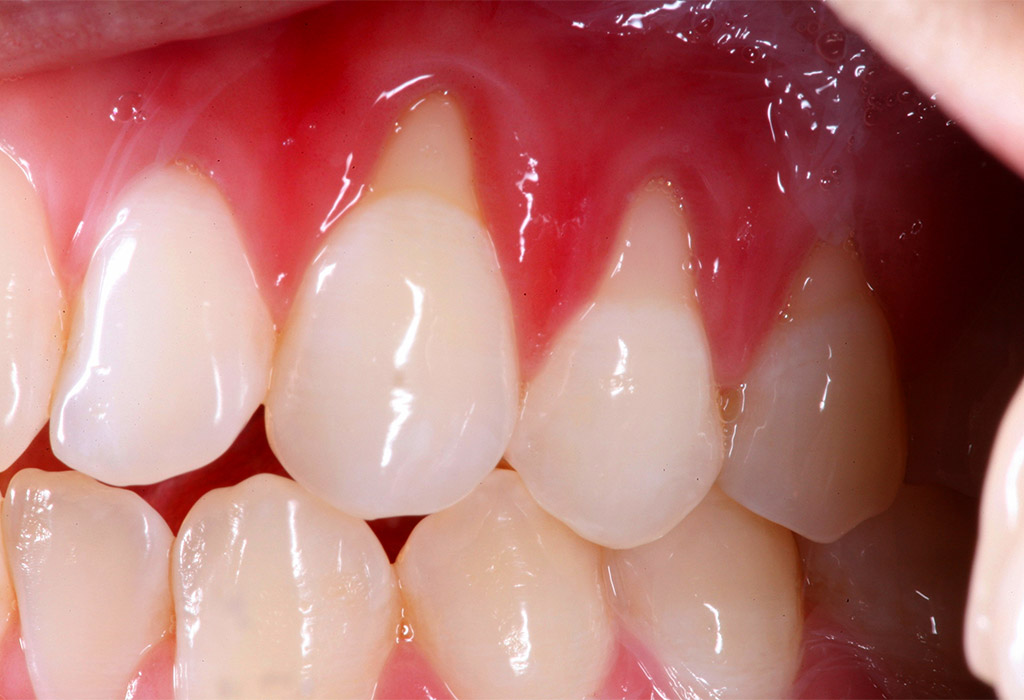
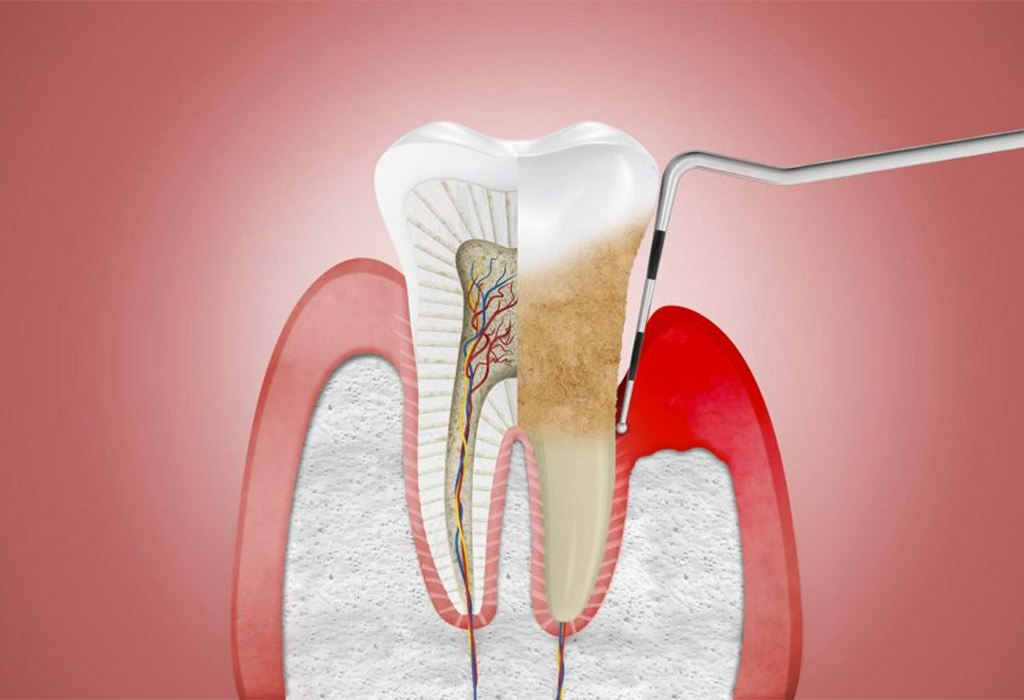
Periodontics is the specialty that studies the prevention, diagnosis, and treatment of diseases and conditions that affect the tissues that support the teeth (gingiva, periodontal ligament, root cementum, and alveolar bone) and their implanted replacements. Periodontal disease, such as gingivitis (inflammation and bleeding of the gums without affecting the bone) or periodontitis (where the supporting bone is destroyed), can ultimately lead to tooth loss.
Diagnosis
Changes in the color, size, or consistency of the gum are important indicators of gingival changes, as are spontaneous bleeding, tooth mobility and migration, bad breath, pain when chewing, abscesses, or heavy bleeding.
Early diagnosis is essential to slow its progression.
The method of measurement is using a periodontal probe. Dentists measure the depth to measure the extent of periodontal disease and bone destruction.
Evolution of gingivitis to periodontitis
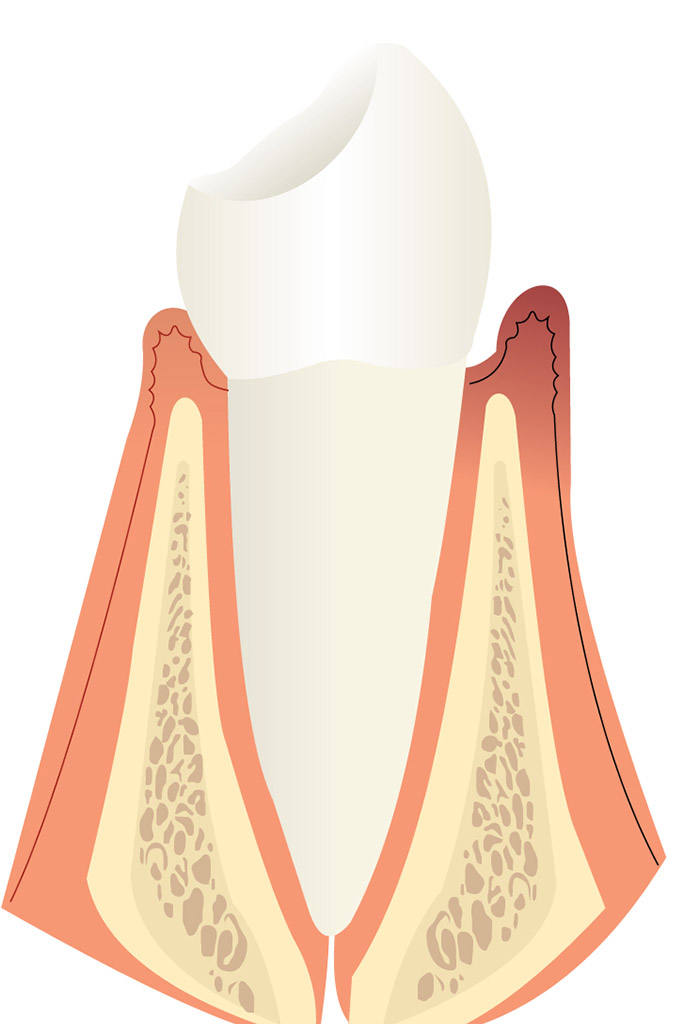
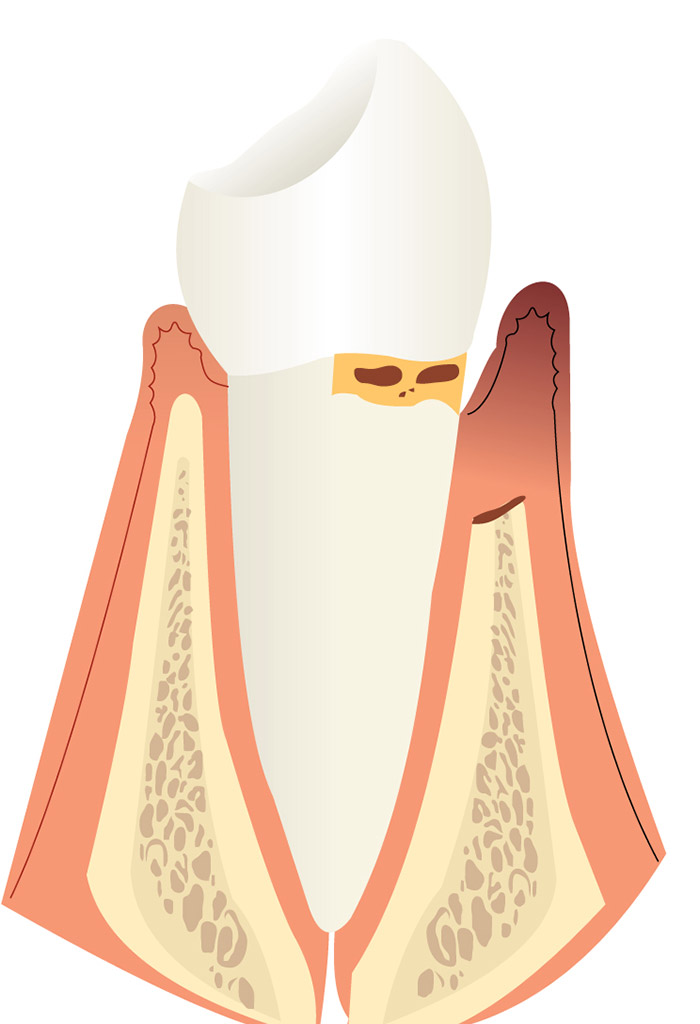
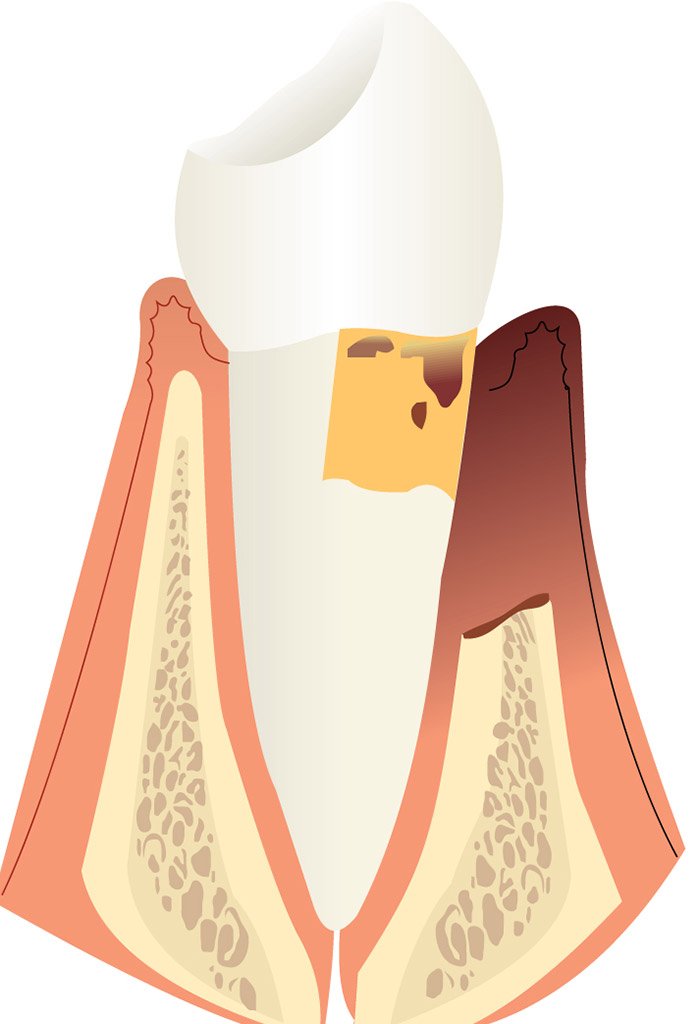
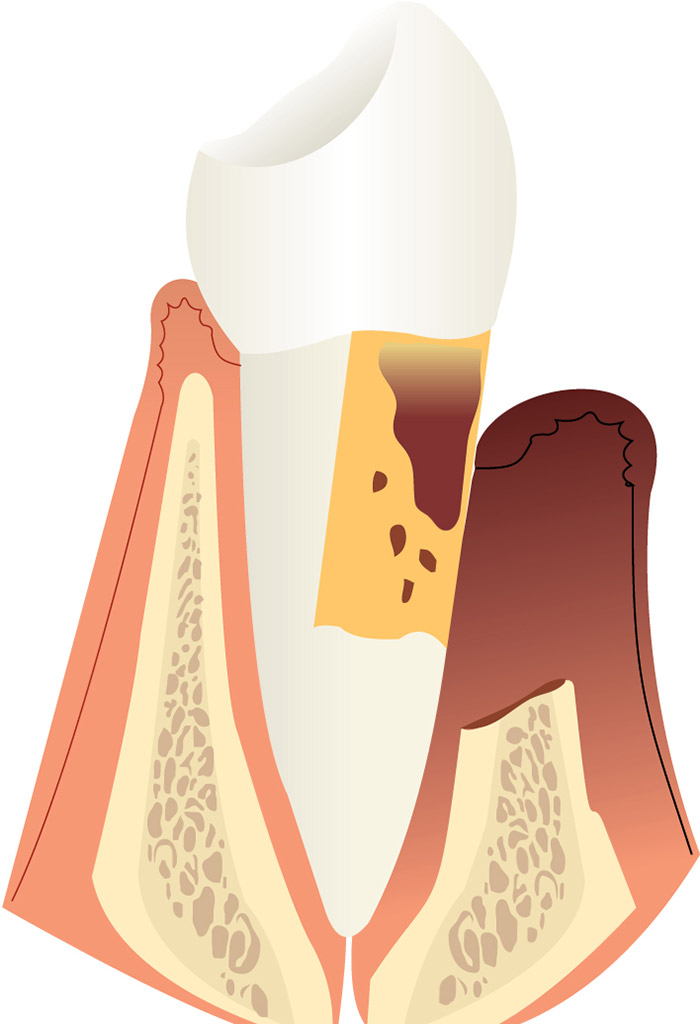
Treatment
Deep cleaning of teeth and gums to eradicate the bacteria that cause this disease. Removal of bacterial biofilms:
Mechanical: Coronal scaling or plaque removal and maintenance therapy for long-term control of periodontal disease.
Antibiotic: High-dose amoxicillin plus clavulanic acid may be considered a good choice for anti-infective treatment.
Surgical: In severe cases where deep pockets limit visibility and access.
Massage: Periodic massage of the gums and teeth with one's own fingers is a popular and widespread practice. However, it is not recommended by dentists.
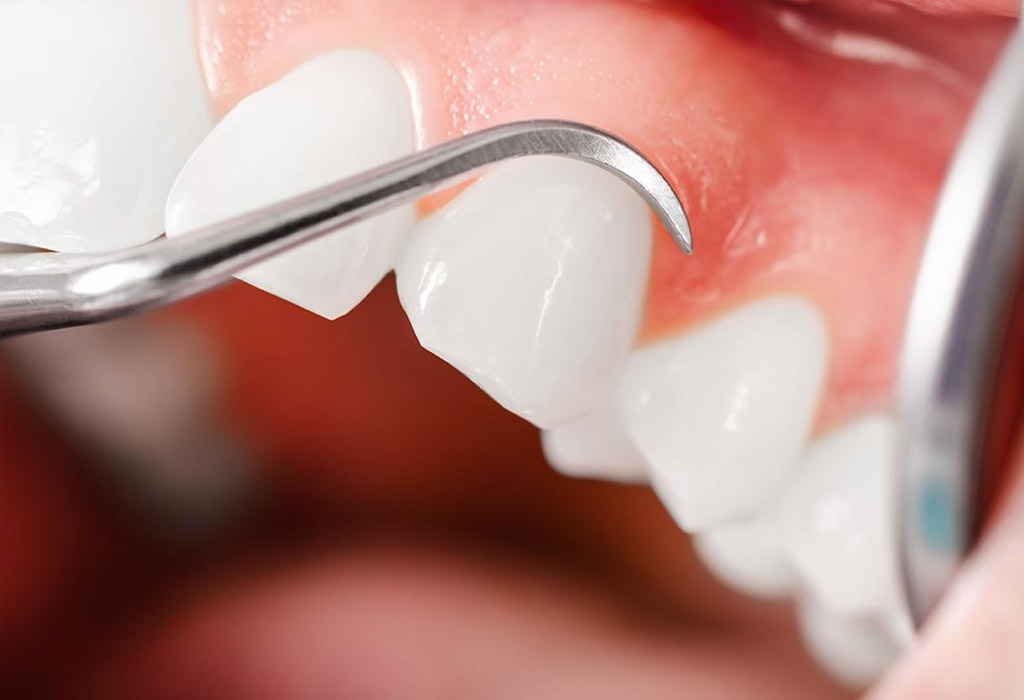
Prevention
It is very important to consult your dentist at the slightest sign or symptom of inflammation and the presence of tartar, as this is where a colony of microorganisms (tartar or calculus) easily adheres.
Controlling microbial biofilm and frequently removing dental calculus is the best way to prevent a disease that ends up loosening teeth, even if they appear healthy.
Bleeding gums, even when brushing, should not be considered normal; discuss this with your dentist.


